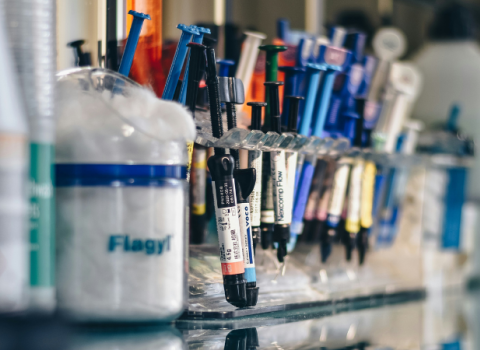Roger Barker from the Centre for Brain Repair at Cambridge University, is to lead an EU programme, which will bring together some of the world’s leading Parkinson’s disease researchers with the aim of speeding up the use of cell-based therapy to treat Parkinson’s disease.
Although there is clinical proof of the efficacy of using implanted cells to treat Parkinson’s disease, with the first implants taking place as long as two decades ago, there have been dramatically varying outcomes. After treatment, some patients were markedly improved and were able to stop taking drugs, while others suffered side effects.
Researchers recognise there was a lack of consistency in previous trials in terms of when the treatment was administered, with patients of varying ages, at different stages of the disease, and so on. Now, the EU project Transeuro will review earlier trials to look at why some procedures are successful and others are not, and put together a protocol to increase the likelihood of future success.
“There has been huge variability in patients’ stage of disease and medication history; the clinical techniques used for cell delivery; the viability and durability of the cells being transplanted; and even in how outcomes were measured. It’s easy to see how difference in average improvement could be obscured within the data,” said Barker.
Transeuro, brings together experts from 13 institutions across five European countries and will also work closely with US research groups. “Our goal is to provide the impetus to push the field ahead to a new phase of cell therapy trial in Parkinson’s disease,” Barker said.
Barker believes data from earlier trials holds information that was previously overlooked, and part of the Transeuro programme will involve reassessing this data with the help of experts involved in the previous trials. In addition, developments in the understanding of Parkinson’s disease within the last decade have enabled researchers to identify sub-types of the disease, and this could prove key in establishing better transplant criteria, and identifying optimum patient groups.
It is anticipated the programme will eventually recruit at least 150 patients from across Europe, of which 20 will be entered into the first transplant trial in 2011/12. “We regard Transeuro as a stepping stone that will refine the clinical methods needed for any kind of cell-based therapy, whatever the source of cells,” Barker said.





 A unique international forum for public research organisations and companies to connect their external engagement with strategic interests around their R&D system.
A unique international forum for public research organisations and companies to connect their external engagement with strategic interests around their R&D system.